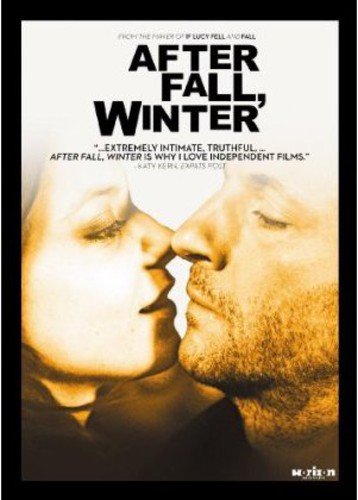
A lonely writer wanders around the streets of Paris before stumbling into an exciting new romantic relationship that reinvigorates his soul while the weight of his normal life concurrently drags him down. Sounds like Midnight in Paris? Well, I failed to mention that the writer and his new lover are both into S&M, pushing this well outside of Woody Allen territory. Don’t let the deviant trappings give you the idea that this is just some exploitation skin flick, as its creator has crafted a moving love story and two well-developed lead characters that elevate the film well above its baser leanings.
In writer/director/star Eric Schaeffer’s latest film, true love blooms between his self-loathing character named Michael and a charming but damaged young Parisian lass named Sophie (Lizzie Brochere). Michael, depressed and heavily in debt, has escaped New York to stay with friends in Paris while he awaits the fate of his latest manuscript making the rounds at the major U.S. publishing houses. Sophie is a medical caretaker by day, assisting terminal patients with accepting their inevitable fate, while at night she transforms into a professional dominatrix. At first it seems like she’s just in the S&M trade for the money, until it becomes clear that her secret profession enables her to keep all men at arm’s length and avoid any emotional intimacy, reinforcing her view that men are perverse creatures unworthy of love.
When a chance meeting leads to an active dating relationship between Michael and Sophie, they find more in common than they ever expected, even while they conceal their S&M involvement from each other. For Michael, his depression and debt lead him to seek out occasional submission sessions as a form of catharsis, with him viewing himself as worthless trash and specifically requesting to be treated as such. He keeps this activity completely hidden from Sophie, maintaining a front as a normal guy who “never lies” just looking for her love. Sophie’s character is a bit less believable, the classic hooker with a heart of gold, but her tender care of hospice patients reveals to the audience her capacity for love that she doesn’t recognize herself. As she opens up to Michael, we also learn about her tragic family life, with an abusive and eventually absent father and a mentally challenged mother that both shaped her current psychological state.
It’s obvious from the outset that their hidden lives will inevitably intersect with their carefully crafted facades, but by the time it happens we’re so invested in the two that the betrayal of trust still comes as a painful shock as telegraphed solely via Brochere’s mournful eyes. Michael’s unknowing destruction of Sophie’s budding love hurts, evidence that Schaeffer has succeeded in both effective character and plot development. Although the ending bends credibility a bit, the film and its characters linger in memory long after the credits roll.
While the film can be enjoyed by itself, it’s worth noting that it is a sequel of sorts to Schaeffer’s previous work of 15 years ago, Fall. He plays the same character here, just 15 years older. Although I’ve followed Schaeffer’s career dating back to his short-lived ’95-96 FOX sitcom Too Something, I was no fan of Fall’s unnecessarily dark romance, much preferring his sunnier preceding rom-com If Lucy Fell. That makes my appreciation of Winter, if not necessarily its unsavory subthemes, all the more surprising to me. Schaeffer intends to continue the series in the future, with each seasonal installment set 15 years after the last. After the devastating events in the final frames of the current film, it will be extremely interesting to see the lingering aftereffects on the character next time around. Michael isn’t much wiser during the bulk of this film, and it’s somewhat disappointing that he romances a girl roughly the same age as the twenty-something girl from Fall, but hopefully his arrested development will be set right by the next film rather than risk further similarity to Woody Allen.
The film looks great, with effective lighting and camera work belying its small budget. Its only noticeable technical shortcoming is its sound recording/editing, with inconsistent levels when switching camera angles in some scenes and even muffled dialogue by Schaeffer at one point.